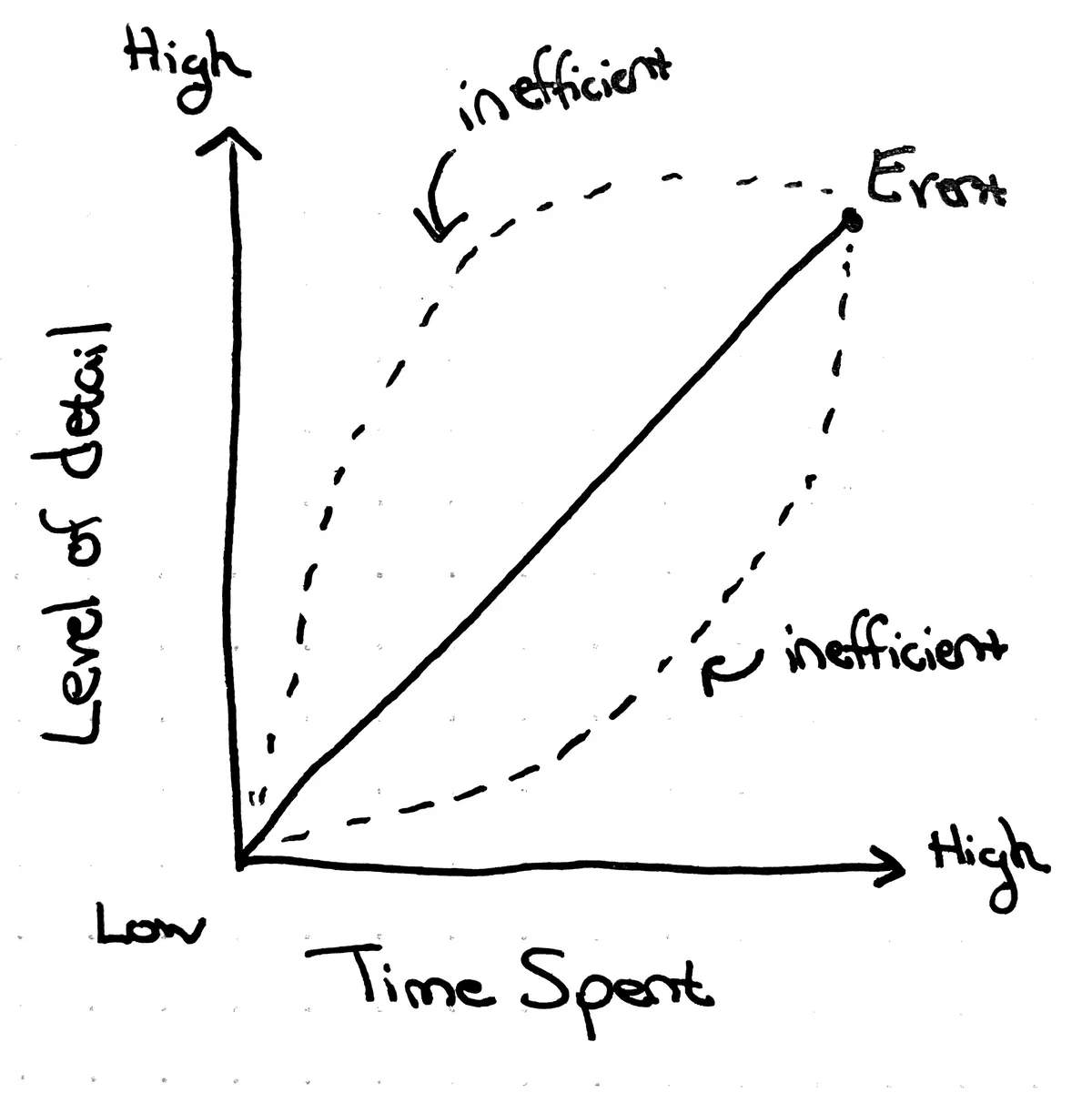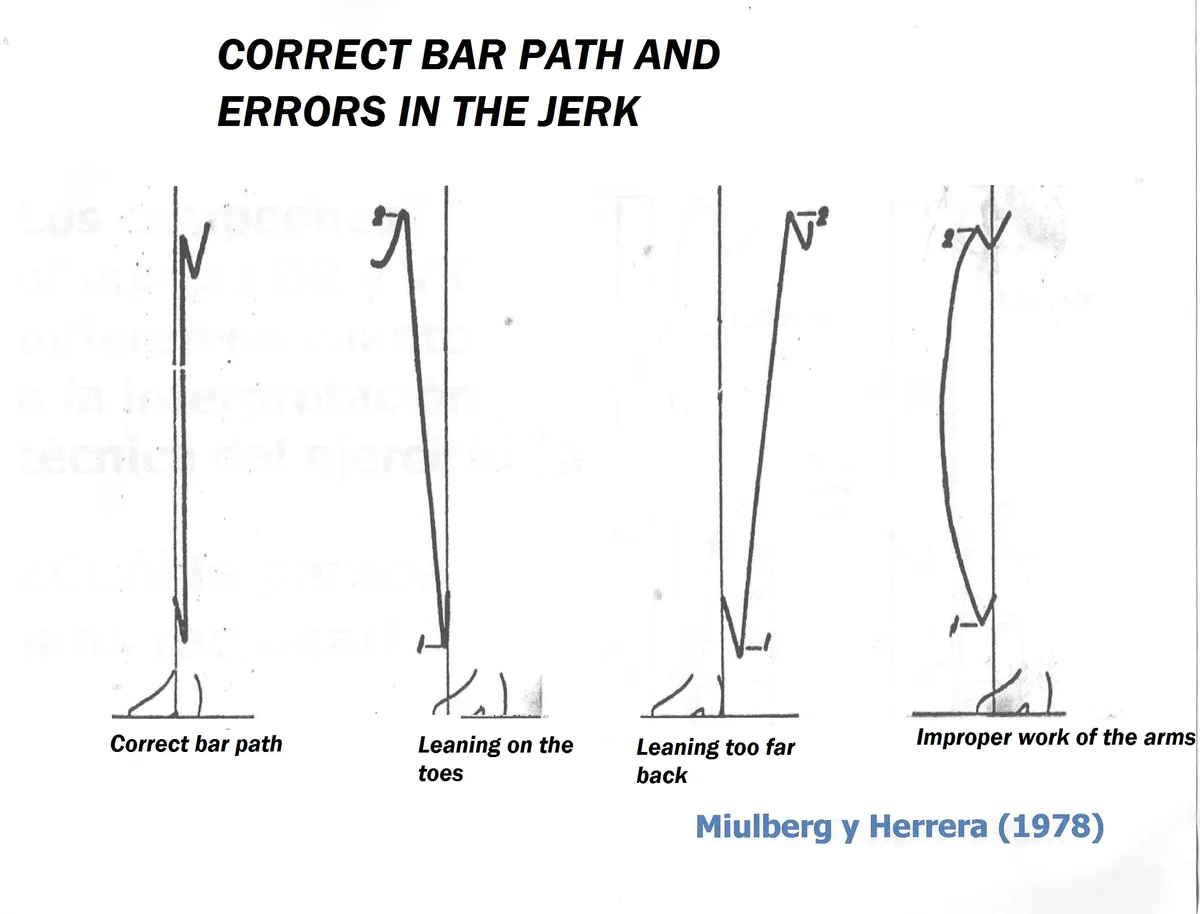Specificity and Temporal Proximity
As a general rule of thumb1 I, (i) don't try too hard on events/deadlines that are far away; and, (ii) do try hard enough on events/deadlines that are close.
This means that if I have something important I'm working on, I work on it with a specificity aligned with its temporal proximity.
- Things that are farther away in time, I think about more generally.
- As it gets closer, I think about with increasing specificity.
Uncertainty → Certainty
When something's far off — uncertainty is high. Trying to plan around it in high detail amounts to wasted effort because the details aren't there (or they are but are likely to change).
The opposite is also true. When something's coming up soon, not spending time on it is wasteful. Uncertainty is low! You should have a high level of detail, and as the event approaches, uncertainty approaches zero.
Roughly it looks like this:

Wasted Effort
This concept mirrors one in barbell training around optimal bar path. When performing a barbell squat:
- There should be as little ⬅️ horizontal ➡️ movement as possible because resistance in the exercise is generated exclusively by gravity.
- Gravity only exerts force ⬇️.
- By definition, any horizontal movement is wasted energy2; like walking against the wind.

Mental Stress
Humans rate things closer in time as more important. For this reason, taking a complex topic and trying to work on it at a high level of specificity when the deadline is far out causes extra stress. Intuitively, I know:
- I'm not working with all the information I need to be successful.
- A bunch of time is going to pass between now and done.
- During that time, I'll probably learn new things about the task.
- Meaning I'll likely need to rework some of what I'm currently doing based on that new information.
Put differently: the feedback loop between when I know what information I'm missing and when I receive that information is long and slow, leaving the feeling of working against myself.
Short feedback loops are less stressful, which is probably why:
- Packing happens the night before the trip.
- Email replies are delayed.
- Reports, RFP responses, and all sorts of presentations are completed the week/ day/night before they're due.
Acting in this way alleviates stress (and is rational). The key is to work at an increasing level of detail as I receive more information. In this way, I match my effort level to the available information (which means a faster feedback loop, lower stress, and using inbuilt time-preferences)!